Health Governance unite at the 2019 Spring caucus
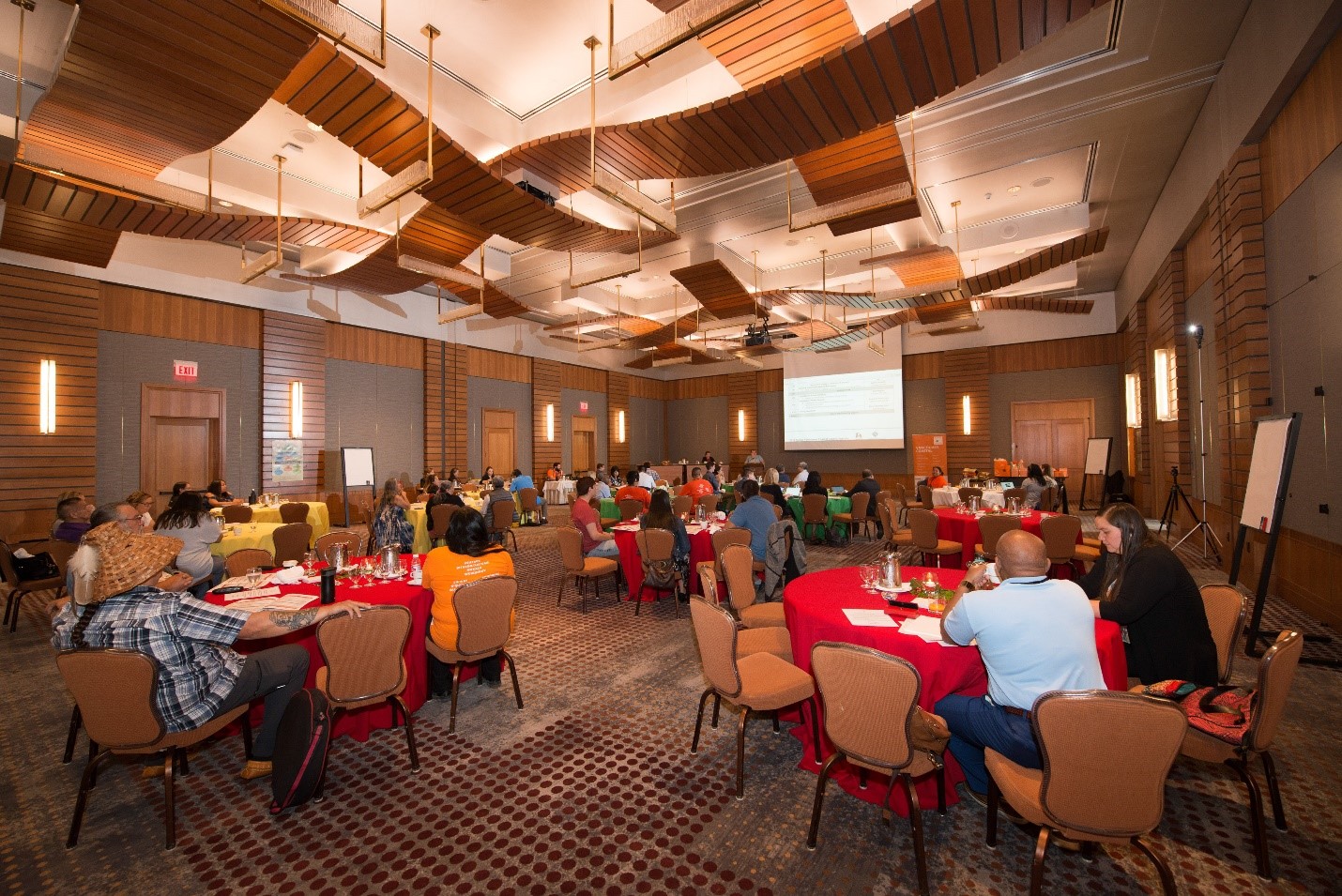
The 2019 Spring Vancouver Coastal Caucus agenda focused on the evolving engagement structure, regional health governance business, tripartite MOU on mental health and wellness, progress on the social determinants of health, Jordan's Principle, summary service plan, First Nations Health Benefits, provincial and regional updates, opioid/overdose public health emergency, Kuu-Us Crisis Services, nation rebuilding, capital infrastructure while honouring and celebrating cultural teachings and practices.
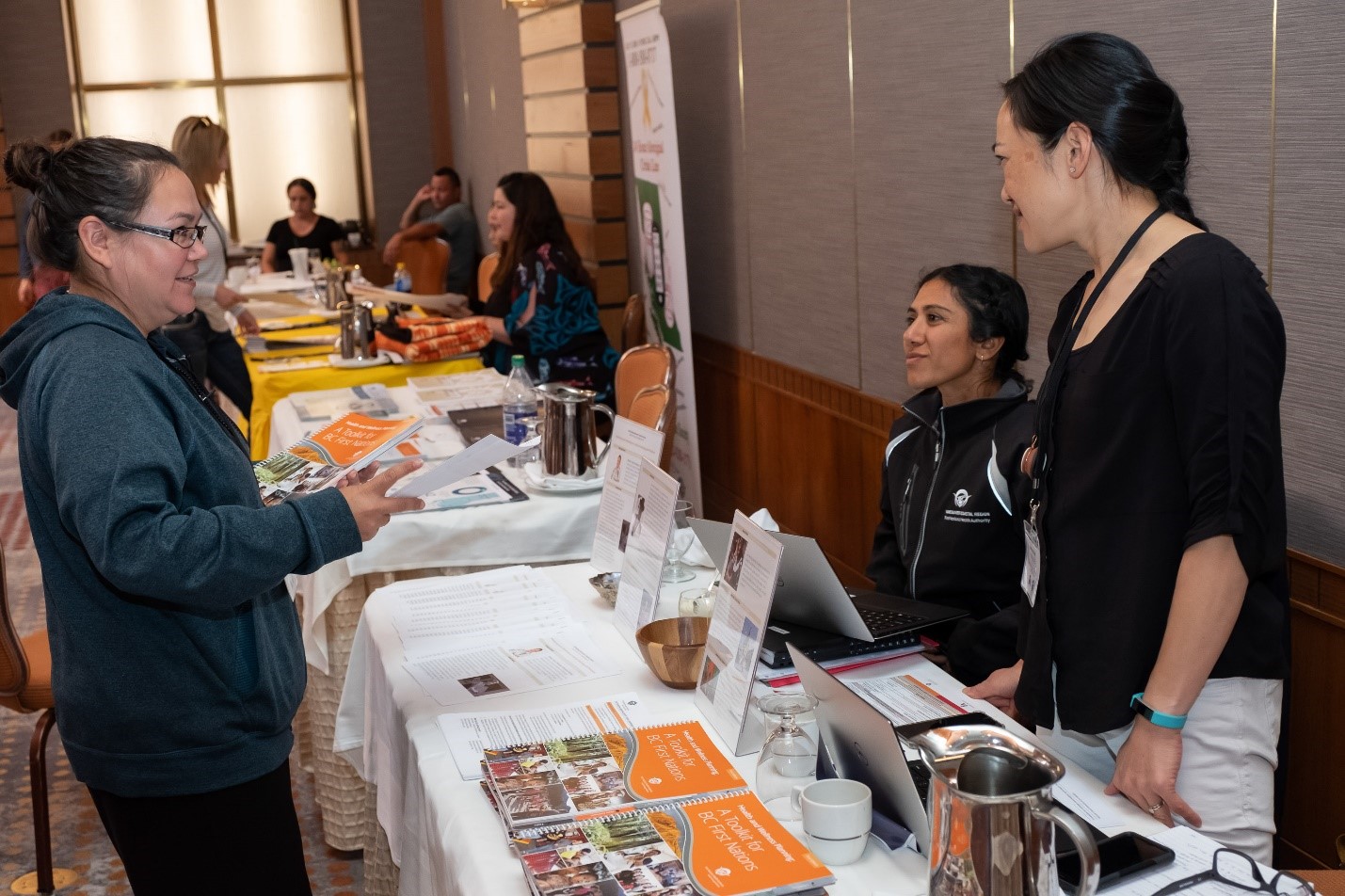
14 Chiefs/Proxy's and more than 28 health leaders from community gathered in the Lil'wat traditional territory from June 18 to 19. The combined attendance with community leadership and health system partners was more than 100 total. All 14 Vancouver Coastal First Nations communities were proudly represented. In addition, there were Traditional Knowledge Keepers, cultural performances and a traditional wellness practitioner.
The caucus proceedings began with the Lil'wat Nation Chief Dean Nelson and Chris Wells, Lil'wat Nation Traditional Knowledge Keeper shared a welcome song to begin the work in a good way. Long-time First Nations Health Council (FNHC) representative for the Southern Stl'atl'imx sub-region, Ernest Armann chaired on day one, keeping the proceedings engaging and on track with his high spirited energy.
On day two of the caucus, Nuxalk Traditional Knowledge Keeper, Clyde Tallio started the day by sharing traditional teachings and blessings to ground the work for the day. The FNHC representative for the Central Coast sub-region, Maria Martin chaired and walked us through the day with precision and care.
"We all have an opportunity to do this work and build a Nation of services in community. It requires many hands and our collective talent." – Maria Martin, FNHC representative
Health leaders had conversations and openly shared about how their communities are working together as Nations in a packed day featuring many guests. Sarah Kastelic, National Indian Child Welfare Association (NICWA), Executive Director shared her knowledge and experience creating community-engaged processes with desired outcomes to develop connectedness in community through the integration of family and Elders. Kastelic is Alutiiq, an enrolled member of the Native Village of Ouzinkie. Katie Hughes, FNHA Executive Director, Mental Health and Wellness provided an update on mental health and wellness investments with a focus on collaboration and contributing to healing and Nation rebuilding. Colleen Erickson, FNHA Board Chair presented the FNHA Summary Service Plan highlighting recent work as well as key priorities for the FNHA in the year ahead. Read the Summary Service Plan here.
Indigenous Services Canada (ISC) spoke about the transition of the administration of the Jordan's Principle program from the FNHA back to ISC. Jordan's Principle is a bridge funding program to ensure there are no gaps in government services to First Nations children. The FNHA began administering the program in September 2017. However the program has expanded beyond health-related requests and now includes social and educational requests – putting its mandate beyond the FNHA's jurisdiction.
The Vancouver Coastal Caucus leadership put a motion on the floor:
MOTION: That the Chiefs and Leaders of the Vancouver Coastal Region develop a recommendation for the First Nations Health Council to advocate on behalf of and elevate the Vancouver Coastal Region's concerns on the transfer of Jordan's Principle services from the First Nations Health Authority to Indigenous Services Canada. – Proposed by Allyson Fraser, Proxy, Musqueam, Seconded by Ayla Brown, Proxy, Heiltsuk
Richard Jock, FNHA, Chief Operating Officer (COO) shared updates on the Community Capital Program, touching on the need for additional funding and potential solutions. He also shared that the province and the FNHA are contributing $20 million each to build and/or renovate treatment centres. He updated communities about ongoing work to stand up First Nations-led primary care projects across regions over the next three years that will demonstrate a team-based approach to services. Advocacy for First Nations equity in primary care networks engagement is planned.
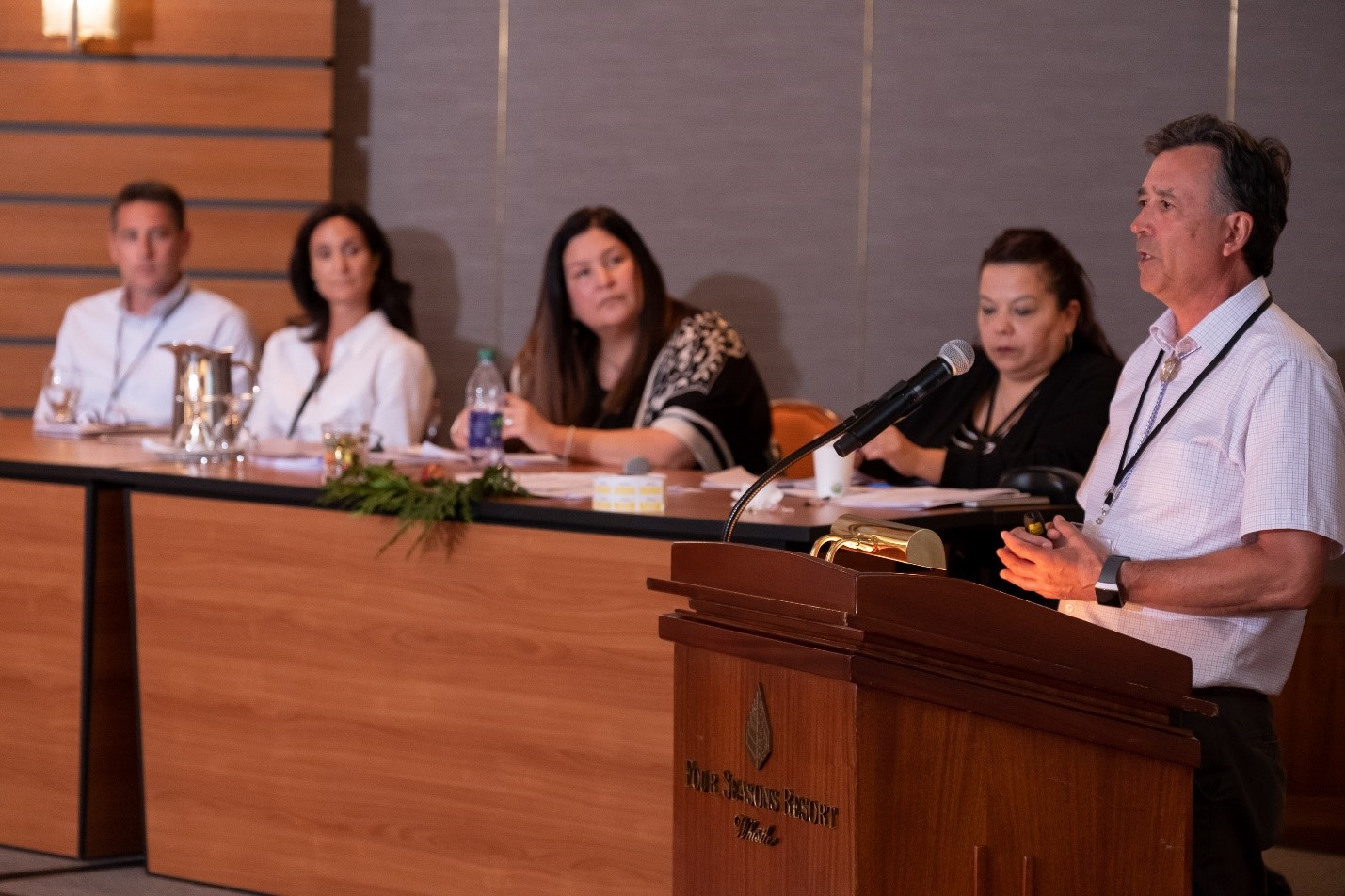
"It's an opportunity for First Nations to lead developments in the province. – Richard Jock, FNHA COO"
Richard reported on what are called "Non-NNADAP (National Native Alcohol and Drug Abuse Program) Subsidy Application Principles." including the following:
• FNHA-funded centres will be considered the first and primary option for addiction treatment
• Provincially-funded beds are the next option
• BC is now partnering on per diem payments in licensed and or registered treatment facilities off-reserve for individuals who are eligible for income assistance
• Any treatment centres funded through non-NNADAP must be licensed under the community care and assisted living act of registered with assisted living registrar
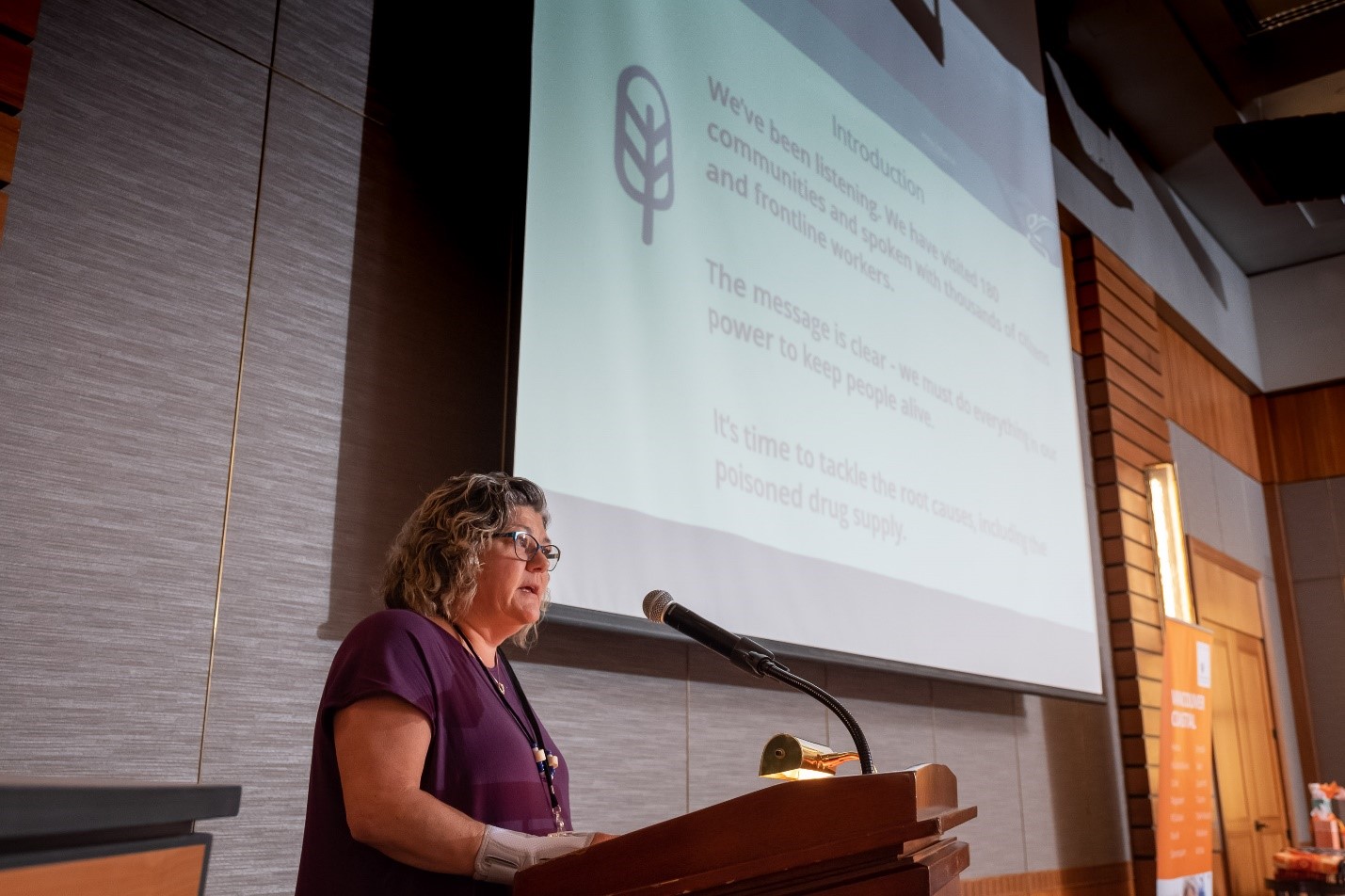
Dr. Shannon McDonald, Deputy Chief Medical Health Officer, provided an update on opioid health statistics for First Nations people in BC in advance of a joint announcement by the FNHA and the province May 27 to release this data provincially. The report says that while First Nations people make up 3.4% of BC's population they account for 16.2% of overdose events – six times more than non- First Nations residents – and 12.8% of overdose deaths – 4.2 times more than other residents. Read the May 27 news release.
Darren McKnight, FNHA Director of Health Benefits Management, reported on the community engagement and other planning that is underway in preparation for the transition of health benefits from the federal government to the FNHA. As of September 16, Pacific Blue Cross will administer health benefits for dental, vision, medical supplies and equipment, and drugs not covered by PharmaCare. There will be ongoing engagement, evaluation and evolution of the program.
The overwhelming consensus by the Vancouver Coastal Caucus was clear: that each community is in the best position to make decisions for the health and wellness of its people, especially considering the geographical realities and culturally-rich diversity of the three sub-regions. There was also rich conversations about how essential it is to provide more expertise, services and resources "at the community-level" in order to minimize the need to leave community to receive essential services.
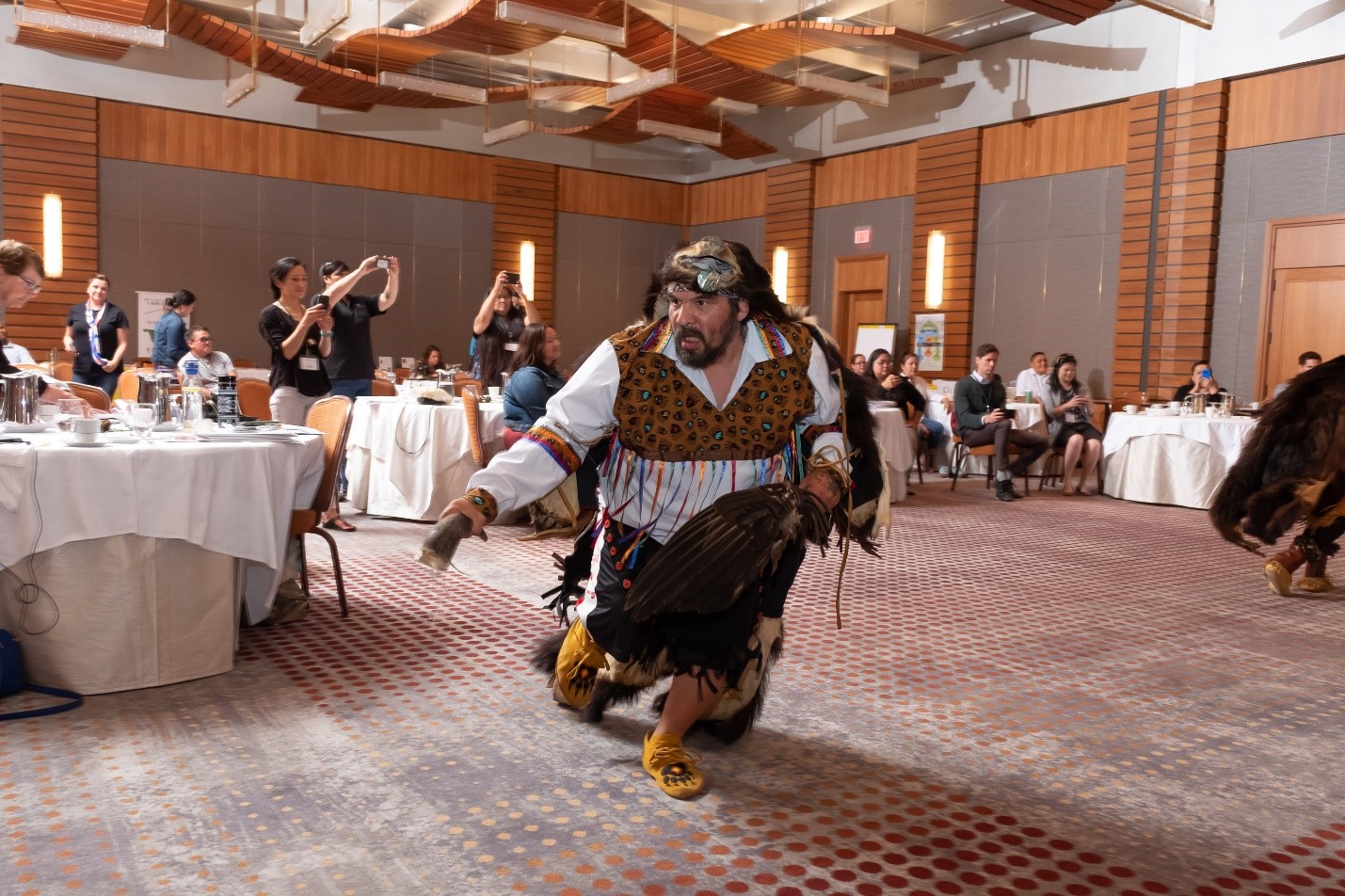
In closing and in demonstration of our shared commitment to center culture and traditional teachings at the core of our work, the caucus was closed off in a good way with a healing and resilience ceremony led by Lil'wat Nation's Bear Dancers.
Vancouver Coastal Caucus Presentations - Spring 2019
Day 1
Fall Caucus Summary Meeting Minutes
Spring Caucus Program
Governance Business and Announcements
FNHC Engagement Update
FNHC Long Term Approach
FNHC Outstanding MOU Commitments
Funding Implementation Update Tripartite MOU on Mental Health and Wellness
What Matters? Measuring Improvements in Mental Health and Wellness
Day 2
Vancouver Coastal Update
Chief Operating Officer Update
Board Summary Service Plan
KUU US Crisis Line Society
FNHC Capital and Infrastructure
First Nations and Opioid Overdose
ISC Jordans Principle
Governance and Business Announcements
Health Benefits Engagement and Transition
Tsleil Waututh Nation Peer Support

